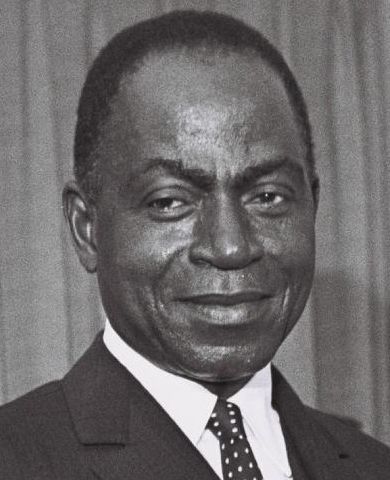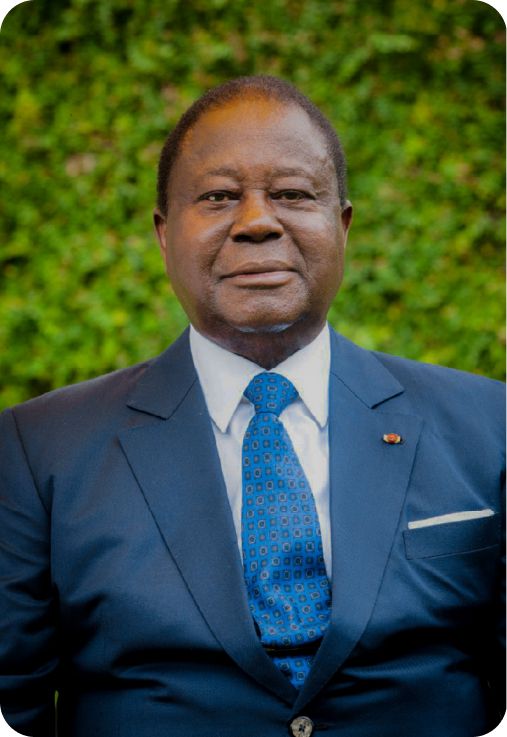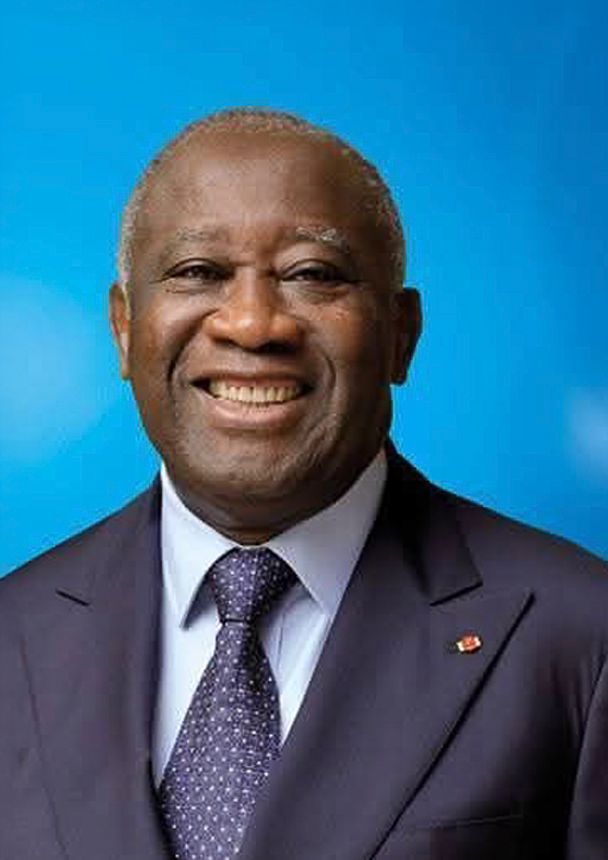Former presidents and heads of state

Félix Houphouët-Boigny
President of the Republic
1960 – 1993
Félix Houphouët-Boigny was the first President of the Republic of Côte d’Ivoire, from 1 960 to 1 993. This presidency has its roots in the various political responsibilities assumed by Félix Houphouët-Boigny since the 1930s.
Born on 18 October 1905 in N’Gokro, later Yamoussoukro, died on 7 December 1993 in Yamoussoukro. Originally from an Akouè kingdom belonging to the Akan group of the Baoulé ethnic group, he was the grand-nephew of Queen Yamousso, who gave her name to the town of Yamoussoukro, today the capital of Côte d’Ivoire. A primary school teacher who graduated from the William-Ponty school in Gorée, Senegal, he preferred medicine, graduating top of his class in 1925. A committed activist, he succeeded his deceased brother and in 1939 became chief of the Akouè kingdom, which covers a canton of thirty-six villages. This was his entry into politics. It was also at this time that he took over the family plantation, one of the largest in the country. In 1945, he was elected to the French Constituent Assembly. He then decided to add boigny, “le bélier”, to his name, thus becoming Félix Houphouët-Boigny. “Le Bélier” was another of his nicknames, a symbol of his power and strength as a leader. Six times Minister of State under General de Gaulle in the Fourth and Fifth Republics, elected President of the Grand Council of French West Africa (AOF) in 1957, invested Prime Minister of the first government of Côte d’Ivoire by the Legislative Assembly on 30 April 1959, Félix Houphouët-Boigny acceded to national sovereignty of the Republic of Côte d’Ivoire on 7 August 1960.
Henri Konan Bédié
President of the Republic
1993 – 1999
Henri Konan Bédié was President of the Republic of Côte d’Ivoire from 1993 to 1999. Initially on an interim basis following the death of President Houphouët-Boigny, he was elected in the 1995 presidential election.
Henri Konan Bédié became the second President of the Republic of Côte d’Ivoire.
Born on 5 May 1934 in Daoukro, in Baoulé country, he studied law and economics at the University of Poitiers, in France, then Dakar, in Senegal.
Appointed Ambassador to the United States from 1961 to 1966, he became Finance Minister from 1966 to 1977. In 1980, he was elected President of the National Assembly.
On 24 December 1999, he was overthrown by a coup d’état.
Exiled to France, he returned to Côte d’Ivoire in 2001 to take part in the National Reconciliation Forum.
In 2010, he was nominated by the PDCI-RDA to stand in the presidential election. After many years at the head of the Parti Démocratique de Côte d’Ivoire, he has announced his retirement from politics. He is nicknamed “the Sphinx”.
On1 August 2023, President Henri Konan Bédié died in Abidjan at the age of 89.

Robert Gueï
Head of State
1999-2000
On 24 December 1999, in a coup d’état, General Robert Guéï seized power.
He set up a National Committee for Public Safety, which he chaired, before forming a government. Lasting less than a year, it was the third and shortest exercise of power in the history of the Republic of Côte d’Ivoire.
Born on 16 March 1941 in Kabakouma, in Yorouba country, he was assassinated on 19 September 2002 in Abidjan.
A career soldier, he trained at the preparatory military school in Bingerville, then in Ouagadougou in Burkina Faso, at the École Normale William-Ponty in Senegal, at the École Militaire Spéciale de Saint-Cyr in France and finally at the École Supérieure de Guerre in Paris.
He ran for president in October 2000, but was defeated.
In 2001, he founded the Union pour la Démocratie et la Paix en Côte d’Ivoire (UDPCI), a political party that is still active today. His appearance on Ivorian television on 25 December 1999 to announce the coup d’état will live long in the memory of Ivorians.
Laurent Gbagbo
President of the Republic
2000-2010
On 26 October 2000, Laurent Gbagbo won the presidential election against Robert Guéï. He became the fourth President of the Republic of Côte d’Ivoire.
Due to an unstable domestic situation, he postponed the next presidential election until 2010. A candidate to succeed Alassane Ouattara, he refused to be defeated, leading the country into serious internal conflict until May 2011.
Born on 31 May 1945 in Marna, in Bété country. From a modest background, he studied at the University of Abidjan and then at the Sorbonne in France, where he obtained a doctorate in history in 1979.
In 1980, he became director of the Institute of African History, Art and Archaeology (IHAAA).
A committed trade unionist from the 1970s, he went underground in 1982 to form the Front Populaire Ivoirien (FPI), a political party that is still active today.
Defeated in the first multi-party elections in 1990, he was elected MP for the Ouragahio constituency and became the leading opposition figure, eventually becoming President of the Republic in 2000.
